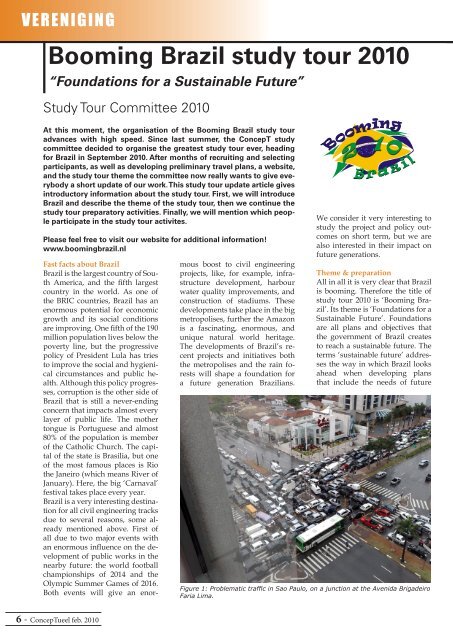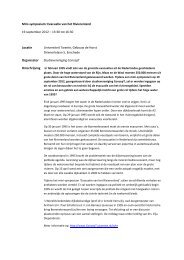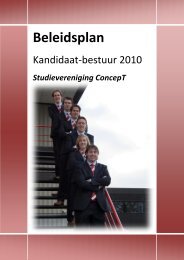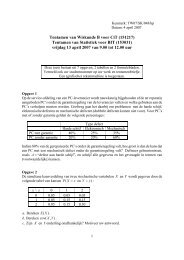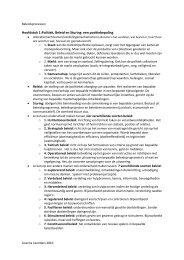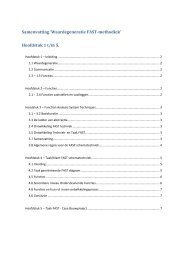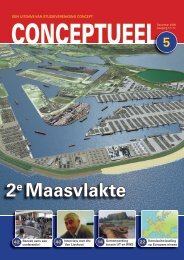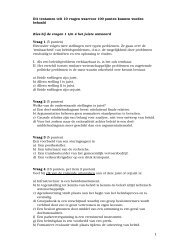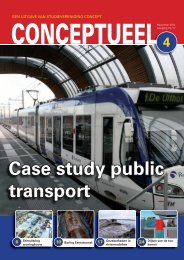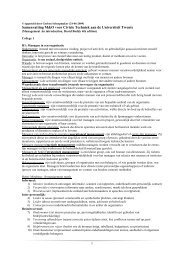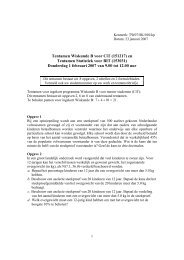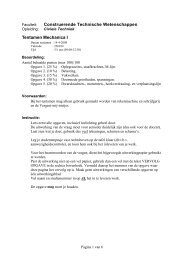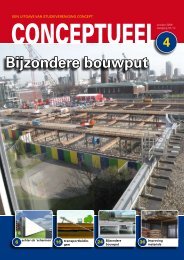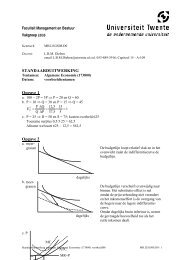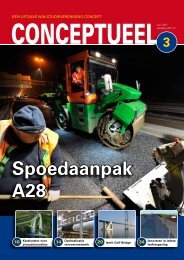Jaargang 19 editie 1 - ConcepT - Universiteit Twente
Jaargang 19 editie 1 - ConcepT - Universiteit Twente
Jaargang 19 editie 1 - ConcepT - Universiteit Twente
You also want an ePaper? Increase the reach of your titles
YUMPU automatically turns print PDFs into web optimized ePapers that Google loves.
V E R E N I G I N G<br />
Booming Brazil study tour 2010<br />
“Foundations for a Sustainable Future”<br />
Study Tour Committee 2010<br />
At this moment, the organisation of the Booming Brazil study tour<br />
advances with high speed. Since last summer, the <strong>ConcepT</strong> study<br />
committee decided to organise the greatest study tour ever, heading<br />
for Brazil in September 2010. After months of recruiting and selecting<br />
participants, as well as developing preliminary travel plans, a website,<br />
and the study tour theme the committee now really wants to give everybody<br />
a short update of our work. This study tour update article gives<br />
introductory information about the study tour. First, we will introduce<br />
Brazil and describe the theme of the study tour, then we continue the<br />
study tour preparatory activities. Finally, we will mention which people<br />
participate in the study tour activites.<br />
Please feel free to visit our website for additional information!<br />
www.boomingbrazil.nl<br />
Fast facts about Brazil<br />
Brazil is the largest country of South<br />
America, and the fifth largest<br />
country in the world. As one of<br />
the BRIC countries, Brazil has an<br />
enormous potential for economic<br />
growth and its social conditions<br />
are improving. One fifth of the <strong>19</strong>0<br />
million population lives below the<br />
poverty line, but the progressive<br />
policy of President Lula has tries<br />
to improve the social and hygienical<br />
circumstances and public health.<br />
Although this policy progresses,<br />
corruption is the other side of<br />
Brazil that is still a never-ending<br />
concern that impacts almost every<br />
layer of public life. The mother<br />
tongue is Portuguese and almost<br />
80% of the population is member<br />
of the Catholic Church. The capital<br />
of the state is Brasilia, but one<br />
of the most famous places is Rio<br />
the Janeiro (which means River of<br />
January). Here, the big ‘Carnaval’<br />
festival takes place every year.<br />
Brazil is a very interesting destination<br />
for all civil engineering tracks<br />
due to several reasons, some already<br />
mentioned above. First of<br />
all due to two major events with<br />
an enormous influence on the development<br />
of public works in the<br />
nearby future: the world football<br />
championships of 2014 and the<br />
Olympic Summer Games of 2016.<br />
Both events will give an enor-<br />
6 - <strong>ConcepT</strong>ueel feb. 2010<br />
mous boost to civil engineering<br />
projects, like, for example, infrastructure<br />
development, harbour<br />
water quality improvements, and<br />
construction of stadiums. These<br />
developments take place in the big<br />
metropolises, further the Amazon<br />
is a fascinating, enormous, and<br />
unique natural world heritage.<br />
The developments of Brazil’s recent<br />
projects and initiatives both<br />
the metropolises and the rain forests<br />
will shape a foundation for<br />
a future generation Brazilians.<br />
We consider it very interesting to<br />
study the project and policy outcomes<br />
on short term, but we are<br />
also interested in their impact on<br />
future generations.<br />
Theme & preparation<br />
All in all it is very clear that Brazil<br />
is booming. Therefore the title of<br />
study tour 2010 is ‘Booming Brazil’.<br />
Its theme is ‘Foundations for a<br />
Sustainable Future’. Foundations<br />
are all plans and objectives that<br />
the government of Brazil creates<br />
to reach a sustainable future. The<br />
terms ‘sustainable future’ addresses<br />
the way in which Brazil looks<br />
ahead when developing plans<br />
that include the needs of future<br />
Figure 1: Problematic traffic in Sao Paulo, on a junction at the Avenida Brigadeiro<br />
Faria Lima.


